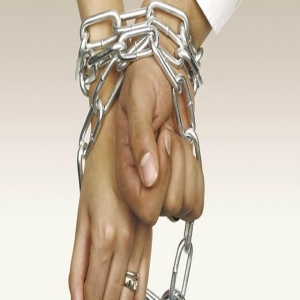

The honeymoon murder case in Meghalaya has garnered significant attention from social media to neighbourhood tittle-tattle. The brutal murder case involves the tragic death of newlywed groom Raja Raghuvanshi, a 29-year-old man from Indore. The first news popped that the couple went missing on May 23, 2025; however, on June 2, 2025, Raja's decomposed body was discovered in a deep gorge near the Wei Sawdong Falls in Sohra, Meghalaya.
Preliminary investigations revealed that the woman allegedly staged her husband's murder. The investigation also revealed that this act was done as she had an affair with Raj Kushwaha, an employee at her brother's factory in Madhya Pradesh. She conspired to murder her husband with her lover and three others. Sonam was arrested on June 9, 2025, at the dhaba in Ghazipur, Uttar Pradesh.
Undoubtedly, the act done by her and her partner was horrendous. The commentary does not justify her actions in any manner. What she did was distressing, objectionable and awful.
Some media channels have claimed that there is yet another person involved as well and that Raj may have inadvertently helped her. Facts are still emerging; however, reflecting on the act from a social angle, understanding the background, motives, and social conditioning of the woman involved is vital. Focusing solely on the crime will not lead to a solution that can prevent similar incidents from occurring in the near future.
Although an intercaste issue has yet to be categorically established, the current revelations cater to such a theory. Even if it were to fail, the following discussion retains validity in general.
To begin with, it is significant to understand the socio-economic background of the culprits. The girl comes from the upper caste, and her lover belongs to the Kushwaha caste, which is classified under the Other Backwards Classes (OBC). This classification places Raj in a socio-economic category distinct from Sonam's family, who are from a higher caste background.
Although the girl came from a clean background with no criminal activity involvement, think about the social pressure the girl had that she found it more comfortable to murder Raja than to persuade her parents. This case has also opened up the complexities of caste dynamics in India, where individuals from different caste backgrounds cannot form relationships that challenge traditional social structures.
Cases of honour killings are still reported in a few parts of our country, even after stringent laws. The case of Balram (21) and Drishti (18), where the girl's family members allegedly killed them due to their secret relationship, which the family did not approve due to the caste difference. The boy belonged to the Nai (barber) community, while the girl was from a Jat family (Hindustan Times, 2025).
In Karnataka's Raichur district, a man was arrested for allegedly killing his 17-year-old daughter because of her relationship with a man from another caste. (April 2025. The Indian Express). It reflects a strong association of caste in the lives of individuals, suggesting that they can surpass laws when it comes to izzat (honour). The girls in Indian settings, especially from upper caste families, are brought up where they are constantly reminded to be the izzat of the family. The so-called family izzat is tainted if she gets married to a boy, especially from the lower caste. The family does not realise the consequences of a forceful marriage. The result mostly leads to murders, suicides, and domestic violence cases.
Things would have been different if the inter-caste barrier had been absent and if the concepts of purity, pollution, and izzat had been diminished. The young boy could have been saved if the girl's parents had approved of their relationship or at least engaged in a healthy dialogue on this topic.
Where the young male was wrong? Why he had to bear the cost of Sonam's and her parent's fault? As parents, it is our responsibility to understand our children's feelings. Likewise, children need to express their emotions openly to their parents. If parents do not understand or threaten them, it is essential to seek help from the police and utilise the available legal provisions. For instance, Article 21 grants the right to marry legally if both parties are of legal age (above 21 for the groom and above 18 for the bride) and capable of giving consent.
Additionally, if parents threaten, one can take police protection. Murder or hurting either by a girl/boy who is forcefully married or by parents in the form of honour killing is inhumane. It is vital to reassess things with a calm and clear mind. It can make a difference!